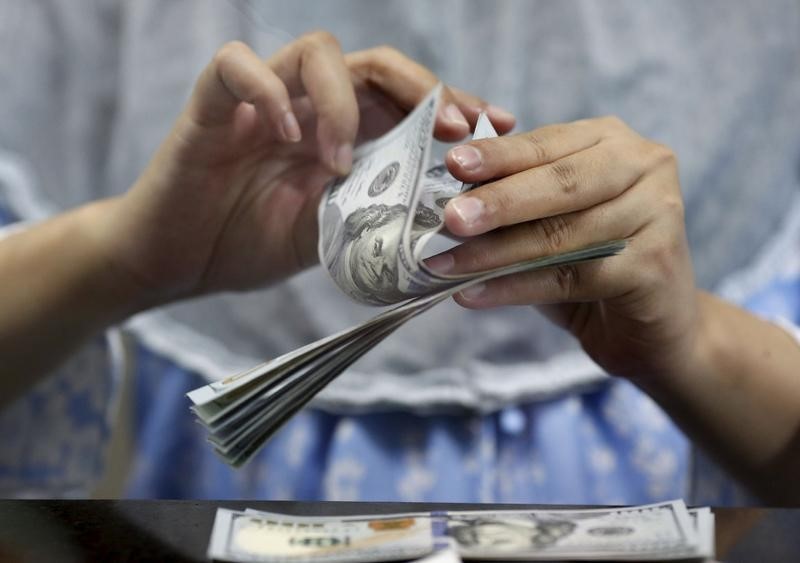By Gina Lee
Investing.com – The dollar was up on Wednesday morning in Asia, but moves were small as investors await the latest U.S. Federal Reserve policy decision.
The U.S. Dollar Index that tracks the greenback against a basket of other currencies inched up 0.05% to 103.28 by 12:44 AM ET (4:45 AM GMT).
The USD/JPY pair inched up 0.02% to 130.12, with the yen remaining just above the 20-year lows hit against the dollar during the previous week. Japanese markets remain closed for a holiday.
The AUD/USD pair was up 0.25% to 0.7111, after Australia released retail sales figures for March 2022 earlier in the day.
The NZD/USD pair inched up 0.05% to 0.6440. Data released earlier in the day showed that the employment change grew 0.1% quarter-on-quarter, while the unemployment rate was at 3.2%, in the first quarter of 2022.
The USD/CNY pair was steady at 6.6083. Chinese markets also remain closed for a holiday. The GBP/USD pair inched down 0.08% to 1.2488.
The Fed will hand down its latest policy decision later in the day, where it is expected to hike interest rates aggressively by 50 basis points, The central bank is also expected to detail plans for the reduction of its balance sheet.
However, some investors expressed doubt that the policy decision could give the dollar a big boost.
“I think that so much good news for the U.S. is priced in that there could be a buy the rumor sell the fact,” Bannockburn Global Forex chief market strategist Marc Chandler told Reuters.
The Bank of England will hand down its policy decision a day after its U.S. counterpart.
The European Union (EU) is also expected to outline oil sanctions against Russia later in the day, the latest response to the Russian invasion of Ukraine on Feb. 24. That war is now entering its tenth week, with Russian forces pounding targets in eastern Ukraine.
The conflict also continues to impact the European economy, with European Central Bank board member Isabel Schnabel telling German newspaper Handelsblatt on Tuesday that the central bank may need to hike interest rates as soon as July 2022 to stop high inflation from getting entrenched.
Italian Prime Minister Mario Draghi on Tuesday also called on the European Union (EU) to act on surging energy costs, adding that "structural solutions" were needed.
The euro continued its slow recovery after dropping to $1.0470 during the previous week, the lowest level since January 2017.
"The EU’s energy security issues remain precarious suggesting that the euro is certainly not out of the woods yet," Rabobank head of FX strategy Jane Foley told Reuters.
In Asia Pacific, the ongoing COVID-19 lockdowns in China continued to stoke fears for economic growth. In Shanghai, some people succeeded in taking short walks and getting some shopping done after enduring more than a month of lockdown. Meanwhile, the capital city of Beijing continues its mass testing program.
